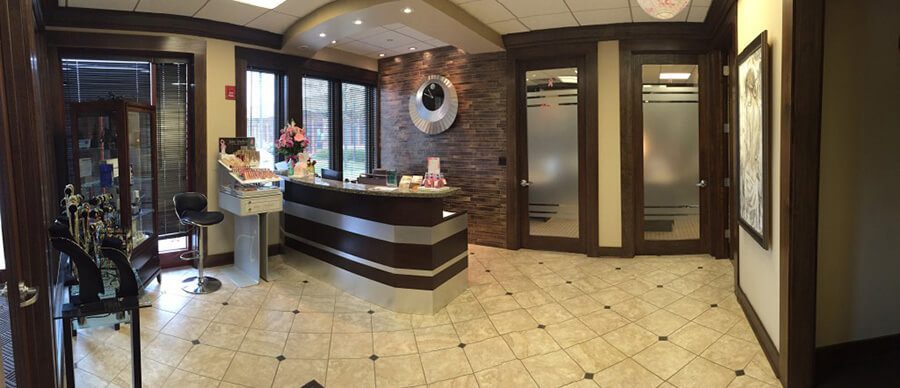Capsular Contracture
Capsular Contracture Chicago
Capsular contracture is an unlikely surgical complication that can occur after breast augmentation surgery. This issue can be corrected with breast revision surgery.

What Is Capsular Contracture?
After breast augmentation, a capsule of scar tissue forms around each breast implant. In some women, the scar capsule may harden and constrict the implant. This condition, known as capsular contracture, may occur in one or both breasts at any point after breast augmentation, though most cases of capsular contracture occur within five years after breast augmentation. The Baker scale measures capsular contracture in four grades of severity:
- Grade I: The tissue capsule has no apparent distortion, and the breast appears unaffected.
- Grade II: The breast has noticeable hardening but appears normal.
- Grade III: The breast is firm and hard, and it looks and feels abnormal.
- Grade IV: The breast is extremely hard, painful, and noticeably distorted.
Capsular Contracture
Frequently Asked Questions
-
Am I at Risk of Developing Capsular Contracture?
On average, 15 percent of breast augmentation patients experience capsular contracture. However, women who undergo breast augmentation with Dr. Schlechter have a much lower rate–less than one percent–due to his technical expertise in performing breast augmentation surgery. Patients who develop an infection or whose bodies struggle with healing have a greater risk of developing capsular contracture. Women who choose silicone implants statistically have a higher risk than women who choose saline implants. Finally, women who have already had breast revision surgery for capsular contracture are more likely to experience this complication again. Even so, Dr. Schlechter’s technical skill in performing breast revision offers patients a low rate of capsular contracture recurrence.
-
How Do I Know if I Have Capsular Contracture?
If you observe any hardening, pain, or visible or tangible changes to your breast, you may have capsular contracture. The implant may also appear displaced in the breast pocket. Consider the Baker scale when assessing whether you may have capsular contracture. Dr. Schlechter can accurately identify this surgical complication with an in-person examination.
-
How Can Breast Revision Surgery Help Me?
Breast revision surgery can help you by replacing the affected implant and removing the hardened scar tissue. Dr. Schlechter will perform a capsulectomy to remove some or all of the scar tissue that has tightened around the breast implant. He will then replace the implant, exchange both implants, or permanently remove both implants according to your needs. Finally, Dr. Schlechter will adjust the breast pocket and breast tissues as needed to produce the best results. Dr. Schlechter has performed many breast revision procedures for capsular contracture, but he rarely needs to perform them on his own breast augmentation patients because his rate of capsular contracture is much lower than the national average. After breast revision surgery with Dr. Schlechter, you will have better aesthetic results and a decreased risk of capsular contracture recurrence.






